One year on from a trifecta of disasters, Tongans walk the slow road to recovery
At 72, Sunia from Tonga carries a heavier load than most people his age. He farms long hours in the tropical heat to feed his family. Together with his wife, he cares for two grandchildren, 10-year-old Lose and her little brother. In his spare time, Sunia volunteers at his grandchildren’s school.
Sunia is grateful for Save the Children’s help after the 2022 volcanic eruption caused a huge wave of water to tear through his coastal community.
The grandfather vividly remembers what he returned to, once it was safe. “All the homes were affected and not one was left unaffected. If a house was left still standing, there was a great amount of sea water and ash inside that particular house, [and] that left us with nothing of importance or usefulness,” he says.
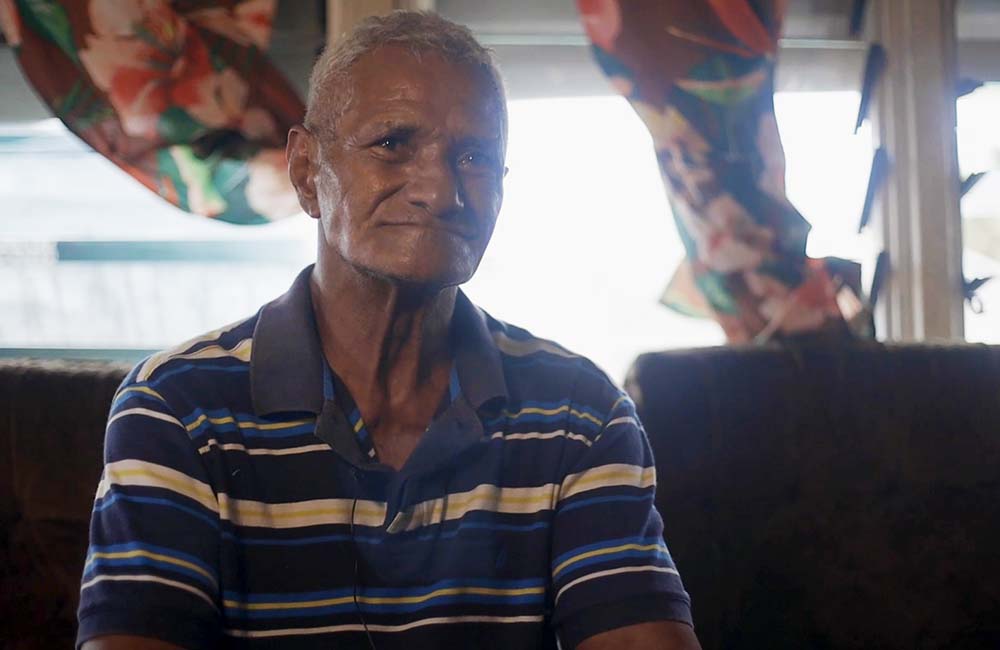
Sunia thanks Save the Children for lessoning his load after a trifecta of disasters turned his life upside down.
“But when you came and distributed the resources, that was a huge blessing to us parents and also the children,” Sunia says. “Some children might not have had any school materials or even a backpack, but you have stepped in and aided them which is a blessing,” he adds, recalling how children received school bags filled with stationery and exercise books.
“We did not take anything with us”
Lose, 10, recalls how quickly the family had to flee once they realised the grave danger they were in.
“When the volcano erupted, I was at home together with my parents. The first rumble of the eruption, I thought it was just workers in the area,” the young girl says.
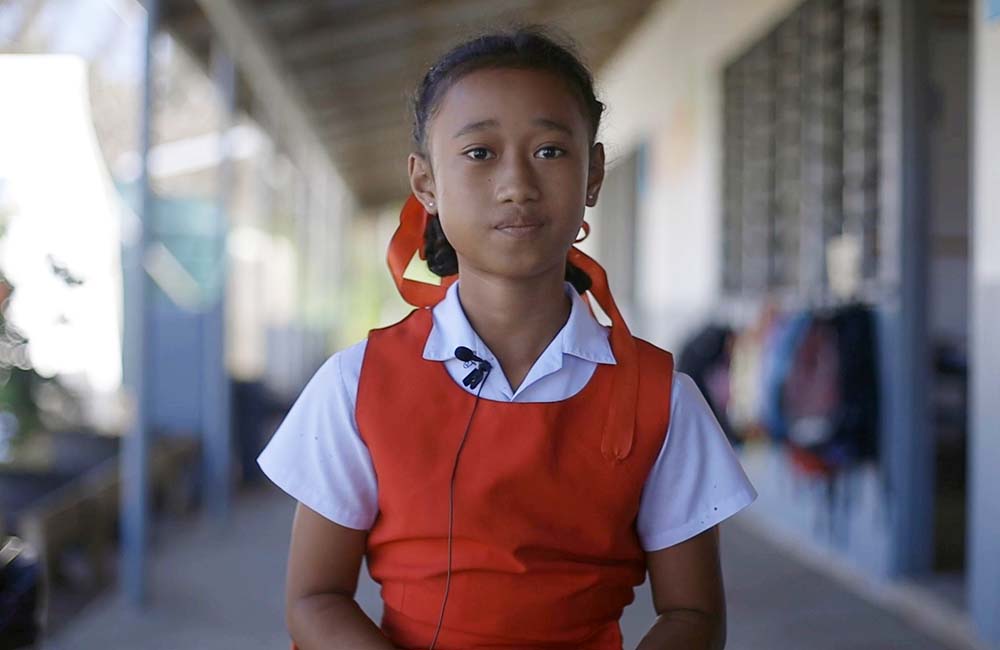
Lose remembers the day a volcanic eruption and tsunami forced her to flee for her life.
“The second rumble we quickly got in our van and fled. We were not going to flee but then a palangi (foreigner) drove by our lawn and called us to flee so we got into our van as soon as we could.”
Lose adds, “We did not take anything with us. We did not take any food or any other necessities. And so, we fled.”
Sunia recounts how the family drove until they found refuge, safe from the reach of the tsunami and the volcano’s deadly debris. “As we came to the village of Kolovai that is when the volcanic pebbles began to rain down, so we went to the village of Puke and stayed in a relative’s house,” he explains.
“We came back on Sunday morning to look at our house. When we came, we did not recognize our village,” Sunia remembers, referencing the destruction caused by the wave and the ashfall that now carpeted Tonga. “Every family tried their best to identify their homes. We are thankful that no life was lost and that everyone was safe,” the grandfather says.
Community members discovered that Lose’s school was also badly damaged by the disaster. Furniture, textbooks and learning resources were ruined, forcing the school to close.
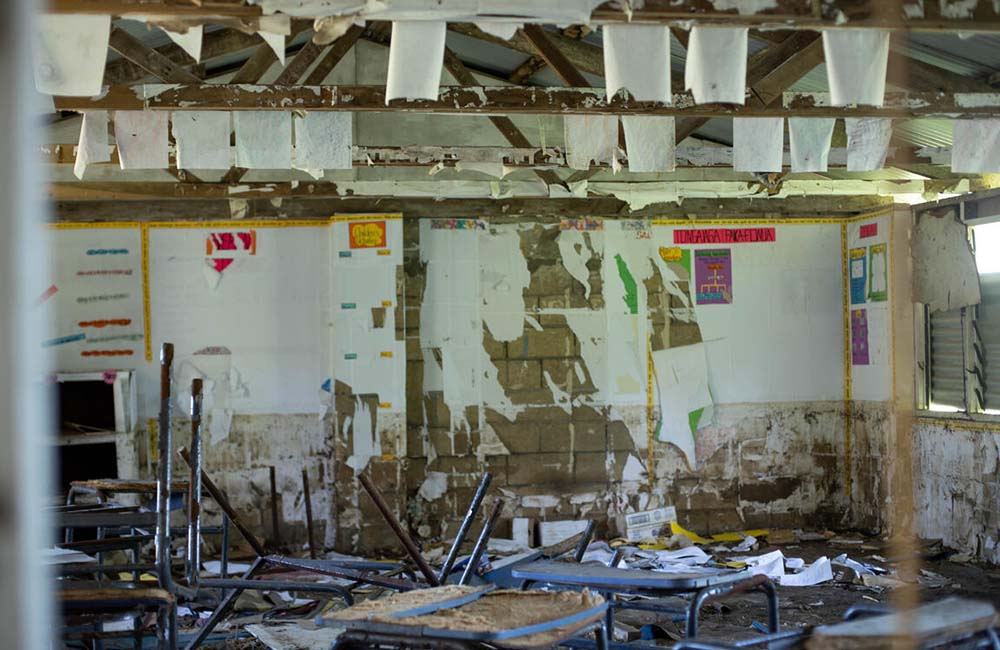
The 2022 volcanic eruption and subsequent tsunami devastated Lose’s school and countless other classrooms across Tonga.
Compounding crises
Unfortunately, Covid-19 arrived on the remote island nation’s shores only weeks later. The virus was detected in two wharf workers distributing aid, sparking widespread fear in a nation already on its knees.
Having been spared the worst of the pandemic for almost two years, Tonga was forced to institute its first widespread lockdown. Many had no home to return to and countless families were forced to take refuge in already crowded evacuation shelters.
Lose recalls, “When Covid-19 came I felt stressed, and I stayed at home a lot. I was going to go outside but my grandparents told me to stay inside before Covid-19 gets to me. And I did, I obeyed their instructions, so I stayed put.”
Sunia echoes his granddaughter. “We were frightened of the disease as it was new to all of us.” He explains how each family member gradually became ill. “…Lose caught the virus from school. She came back home; we did not realise anything and in time Lose recovered. I and my wife went to town to a clinic where I caught the virus and got ill as well,” he says.
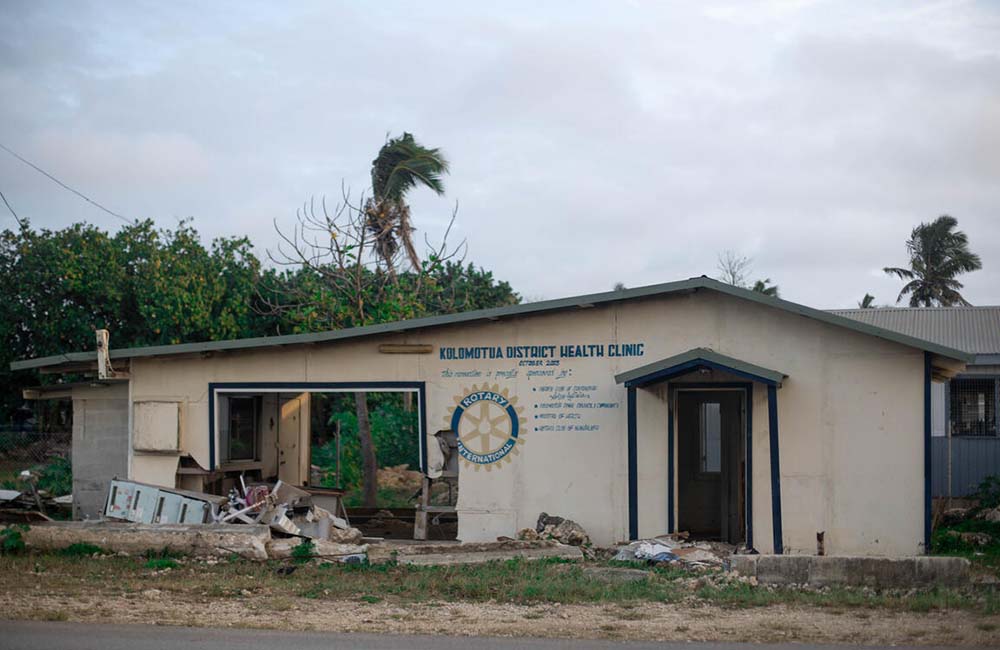
The destruction of medical clinics made managing Tonga’s first widespread outbreak of Covid-19 additionally difficult.
“We continued on until [my wife] had to be rushed to the hospital. They got her tested only to find out she also had Covid, so we had to stay at the hospital.”
The family feels lucky to have put this difficult time behind them, with Sunia’s wife making a full recovery. “As life continues, we are thankful for god’s help that we were able to withstand all the hardships,” the grandfather says.
Road to recovery
Tongan schools are now open again and Lose is thrilled things are returning to normal. “I was overwhelmed with joy to be back at school,” she says. The fifth grader uses the face masks and hand sanitiser distributed by Save the Children to stay safe in the classroom. We’ve also distributed new learning resources so teachers across Tonga can restock their classrooms and help students dive back into learning. “I am glad to be back at school so that I may gain more knowledge,” Lose says.
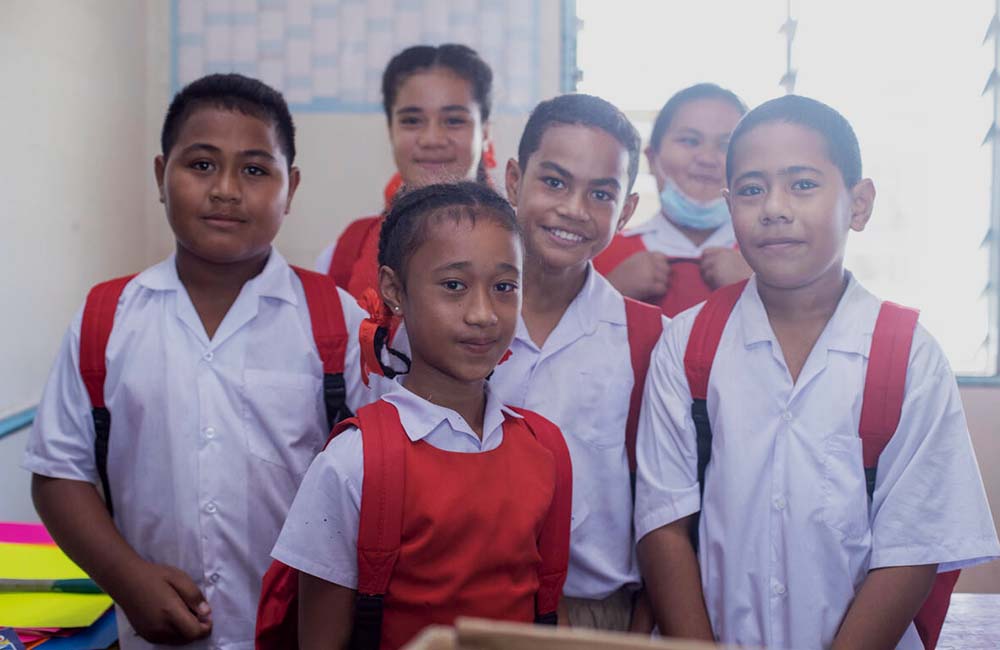
Save the Children provided school supplies and PPE to Lose and her peers so they could continue learning safely after the crisis.
Sunia is grateful to be free of Covid, but the impacts of the 2022 crisis linger for him. “There is no more plantation thanks to the tsunami. The land that I am about to regrow my crops on has a lot of coconut trees and electrical lines lying everywhere. Little to no work can be done,” he says, adding that his family now buys their food in the market.
“I went there this morning to cut down some of the trees and removed some of the debris…[but] we need a machine to clear out the trees and debris so that we can then start working on a plantation. That is one of the hardships that we face as of now.”
The elderly man is grateful for the load Save the Children took off his shoulders, helping children recover from the disasters. Speaking on behalf of his community, he says, “we feel that we are not ignored after all these sudden events that we have come face to face with. We are deeply thankful.”
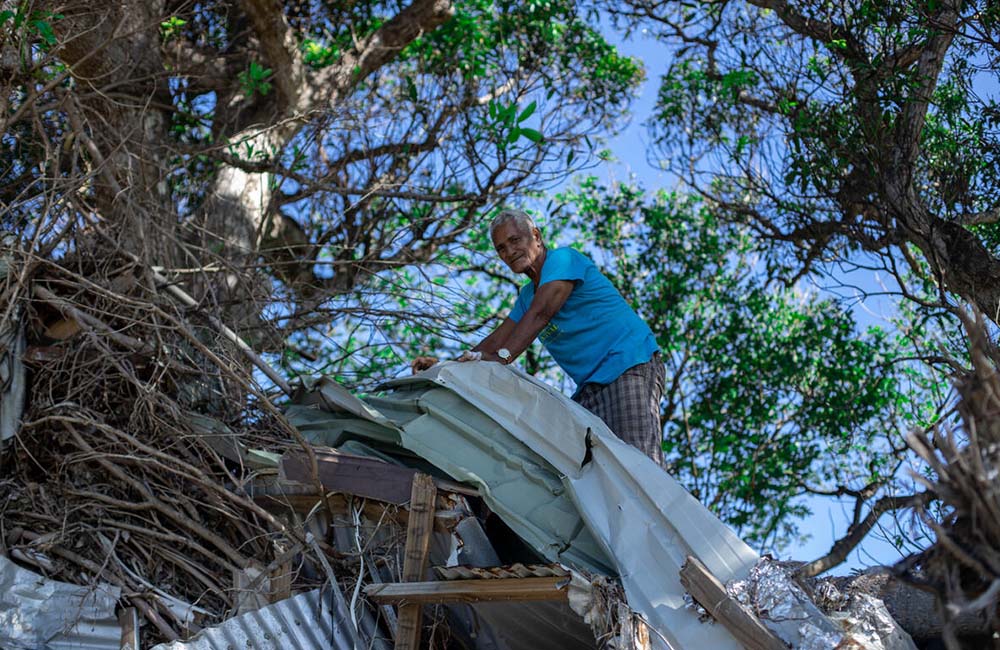
Sunia struggles to remove the mountain of debris deposited on his farmland by the tsunami.
“We are fortunate and blessed because we know that love will be exchanged with love,” the grandfather says, becoming emotional.
Working in partnership with the Tongan Ministry of Education and Training and the Australian High Commission, Save the Children has distributed classroom kits, chalkboards, face masks, hand sanitiser and school bags to 73 disaster-impacted schools in Tonga.
Thanks to your support, we’ve reached 12,907 children since the crisis began one year ago. We’re continuing our work to help give all Tongan children access to a quality education and minimise disruption to their learning, even when disasters like this one force schools to close.
Photos: Mesake 'Isileli Taukolo/Save the Children